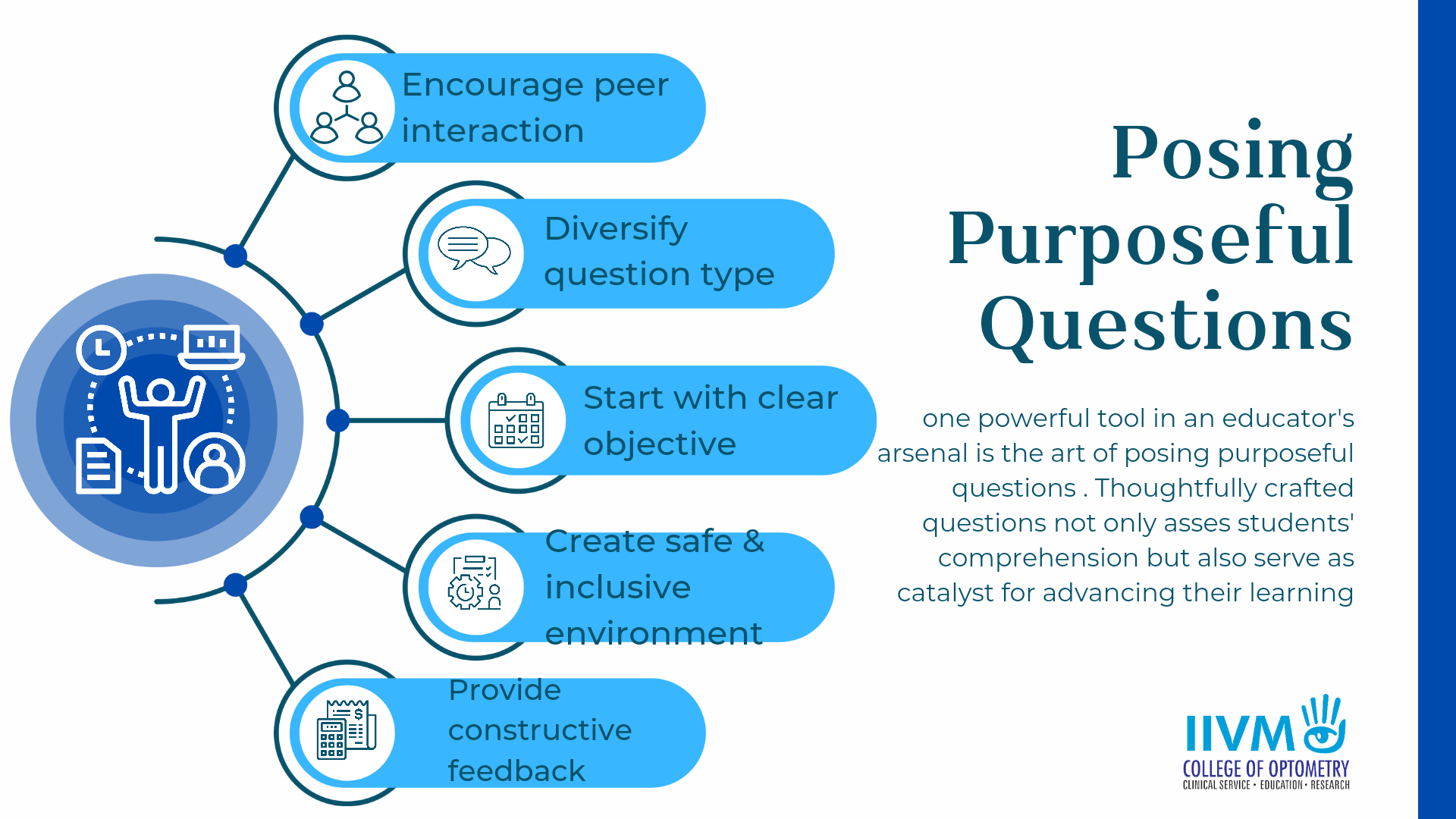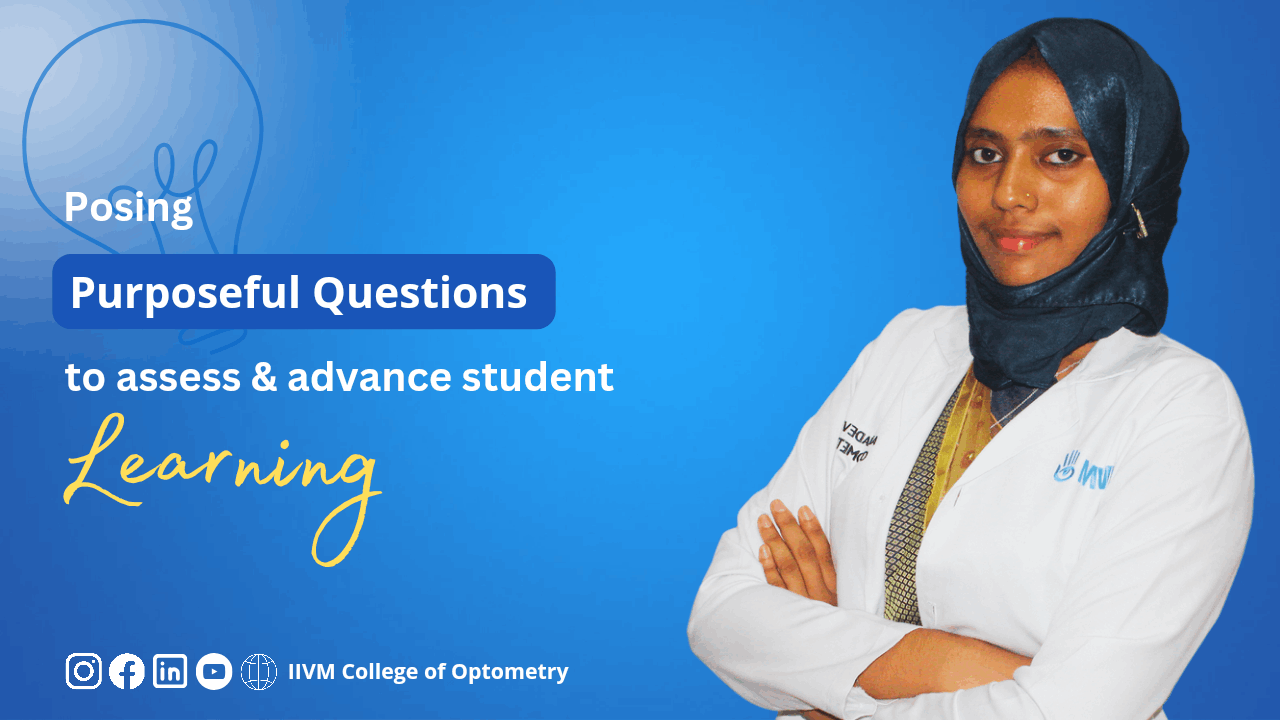Posing Purposeful Questions to Assess and Advance Student Learning
Effective teaching goes beyond delivering content; it involves engaging students in active learning experiences that promote critical thinking, problem-solving, and a deeper understanding of the subject matter. One powerful tool in an educator's arsenal is the art of posing purposeful questions. Thoughtfully crafted questions Best Optometry Colleges in Coimbatore not only assess students' comprehension but also serve as catalysts for advancing their learning. In this blog post, we'll explore the significance of purposeful questioning in education Best Allied Health Science Coursesand provide insights into how educators can leverage this technique to enhance student learning.
'purposeful questions are the compass in the educator's toolkit, guiding the journey of student learning. By steering through comprehension and delving into critical thinking, these questions navigate the path towards intellectual growth'
The Purpose of Purposeful Questions:
- Purposeful questions are designed to gauge students' comprehension of the material. Instead of relying solely on traditional assessments like quizzes and exams, posing thoughtful questions during and after lessons allows educators to obtain real-time feedback on students' grasp of concepts.
- Beyond simple recall, purposeful questions stimulate critical thinking skills. By prompting students to analyze, evaluate, and synthesize information, educators can foster a deeper understanding of the subject matter and encourage independent thought.
- Well-crafted questions capture students' attention and encourage active participation in the learning process Exclusive Optometry College in India. This engagement is crucial for maintaining a positive and dynamic classroom environment, where students are motivated to explore ideas and contribute to discussions.
- Purposeful questions serve as diagnostic tools, helping educators identify and address misconceptions. By probing students' responses, teachers can pinpoint areas of confusion and provide targeted feedback, ultimately correcting misunderstandings and reinforcing accurate knowledge.
Strategies for Posing Purposeful Questions:
1. Start with Clear Objectives:
Before crafting questions, educators should establish clear learning objectives. Understanding what they want students to achieve allows them to tailor questions that align with these objectives and guide the learning process effectively.
2. Diversify Question Types:
Varying the types of questions keeps students engaged and addresses different cognitive levels. Incorporate open-ended questions to promote critical thinking, multiple-choice questions for quick assessments, and application-based questions to bridge theoretical knowledge with real-world scenarios.
3. Create a Safe and Inclusive Environment:
Create a classroom culture where students feel comfortable expressing their thoughts and ideas. A safe environment encourages students to take risks, share diverse perspectives, and engage in meaningful discussions.
4. Encourage Peer Interaction:
Group discussions and peer interactions can enhance the impact of purposeful questions. Collaborative learning environments allow students to learn from each other
5. Provide Constructive Feedback:
When students respond to purposeful questions, provide constructive feedback that guides their learning journey. Reinforce correct answers, gently correct misconceptions, and encourage further exploration of the topic.

Posing purposeful questions is an art that transforms the learning experience from a passive reception of information to an active, engaging process. Educators who master this technique not only assess their students' understanding but also propel them towards deeper learning and critical thinking. By consistently integrating purposeful questions into their teaching strategies, educators can create dynamic and intellectually stimulating environments that empower students to become lifelong learners.
Elevate your learning experience by enrolling at IIVM College of Optometry, where purposeful questions are the catalysts for deeper understanding, critical thinking, and a lifelong love for learning. Ignite your curiosity and explore the world of optometry in an intellectually stimulating environment.
For admission and fellowship courses, please contact +91 98431 16339


